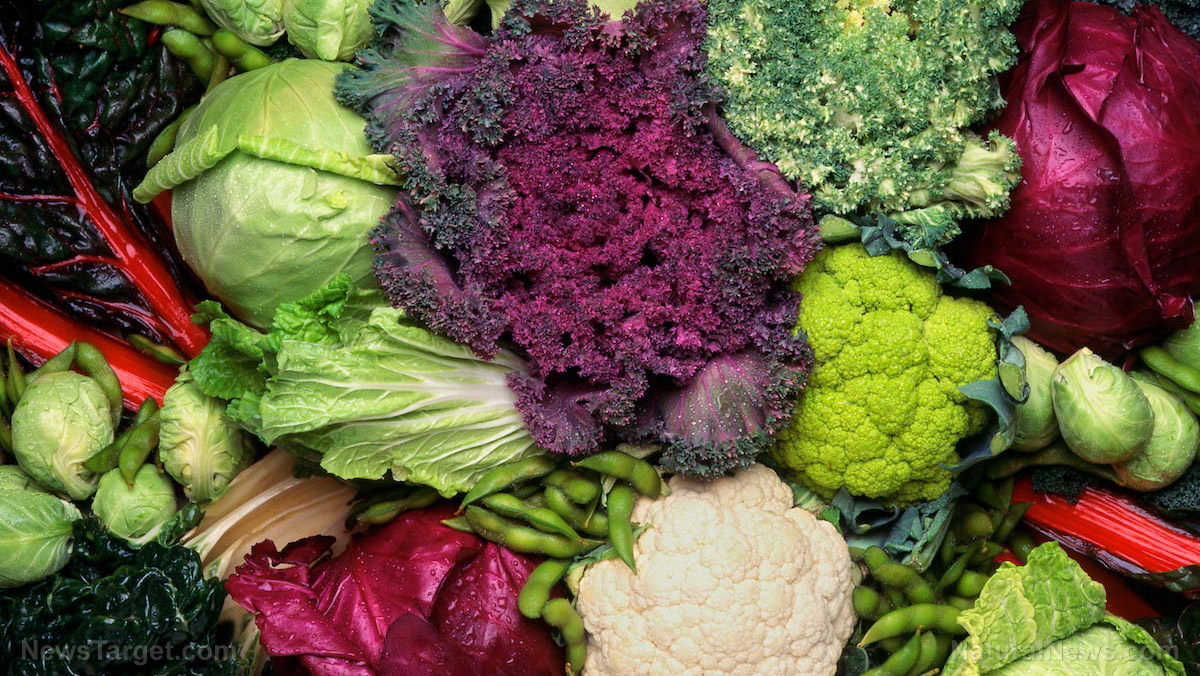
Advertisement
Cruciferous vegetables like broccoli are well-known for their anti-cancer properties. They owe these to a large group of sulfur-containing compounds called glucosinolates, which can only be found in members of the mustard (Brassicaceae) family.
Thanks to glucosinolates and their conversion products, cruciferous veggies are some of the most well-studied foods on the planet. In fact, researchers have been exploring the potential of these vegetables for cancer prevention for years.
But despite strong evidence of their anti-cancer activities, one downside of plant metabolites is that they have poor bioavailability. This means that they are poorly absorbed by the body. In the case of glucosinolates, their bioavailability, as well as their conversion products, depend on certain factors, such as food storage, temperature and food processing. The latter, in particular, has greatly hindered the development of glucosinolate conversion products into viable cancer treatments.
But in 2018, a group of researchers from Singapore proposed a novel way to improve the breakdown of glucosinolates into cancer-fighting chemicals inside the body. Using the latest technology, they transformed a common gut bacterium into a useful promoter that can enhance the conversion of glucosinolates and the bioavailability of the resulting products. The researchers reported that the combination of engineered probiotics and a diet rich in cruciferous vegetables can effectively kill colon cancer cells without harming healthy cells.
How food preparation affects glucosinolate absorption
Glucosinolates are responsible for the pungent aroma and characteristic bitter taste of cruciferous vegetables. When you chop or chew these vegetables without cooking, it triggers a chemical reaction that results in the conversion of glucosinolates into isothiocyanates and indole-3-carbinol. These conversion products are said to be the ones responsible for most of the health benefits associated with cruciferous vegetables.
For instance, researchers have found that isothiocyanates like sulforaphane, phenethyl isothiocyanate and benzyl isothiocyanate can prevent cancer in animals and stop the growth of cancer cells in culture. Meanwhile, indole-3-carbinol is currently being studied as a potential cancer-preventive agent. Because of its ability to regulate the activity and metabolism of estrogen, indole-3-carbinol is eyed by experts as a promising treatment for breast cancer.
Food preparation greatly affects how your body processes glucosinolates. When you eat cruciferous vegetables without cooking — something not everyone is comfortable doing — an enzyme called myrosinase that’s naturally present in them helps turn glucosinolates into useful products in your gut. This process is highly efficient and results in the rapid absorption of isothiocyanates by the body.
But when you cook cruciferous vegetables, the heat inactivates myrosinase, leaving the job of metabolizing glucosinolates solely up to your intestinal bacteria. According to studies, this alternative event leads to a slower rate of glucosinolate breakdown and poor absorption of conversion products. Hence, if you want to take advantage of the anti-cancer benefits of cruciferous vegetables, you have no other choice but to eat them raw.
Probiotics help improve the bioavailability of anti-cancer agents from broccoli
To address the problem caused by cooking cruciferous vegetables, Singaporean researchers decided to engineer microbes into probiotics that can promote glucosinolate conversion in the absence of plant myrosinase activity. They chose Escherichia coli, a gut bacterium that naturally resides in the human gut. They gave the microbe the ability to bind to colorectal cancer cells and produce its own myrosinase in order to speed up the conversion of glucosinolates to sulforaphane.
According to the researchers, the idea behind their experiment is to induce cancer cells to take up sulforaphane, which is known to trigger cancer cell death. Since the engineered E. coli selectively binds to cancer cells and normal cells don’t produce myrosinase, the latter are not endangered in any way by their strategy.
When the researchers combined the engineered E. coli with broccoli extracts containing glucosinolates, they found that the combo killed more than 95 percent of colorectal cancer cells in culture. Meanwhile, in mice with colorectal cancer, the combination of the probiotics plus broccoli also reduced the number of tumors by 75 percent.
In addition, compared to mice that did not receive the same treatment, the tumors detected in the treated animals were three times smaller, suggesting that the engineered probiotics successfully enhanced the conversion of glucosinolates from broccoli into cancer-fighting isothiocyanates. According to the researchers, their engineered commensal bacterium, in the form of a supplement and in combination with a cruciferous vegetable-enriched diet, can be used for cancer prevention and for eliminating any cancer cells left after the surgical removal of tumors.
“One exciting aspect of our strategy is that it just capitalizes on our lifestyle, potentially transforming our normal diet into a sustainable, low-cost therapeutic regimen. We hope that our strategy can be a useful complement to current cancer therapies,” said Associate Professor Matthew Chang, one of the study authors.
Cruciferous vegetables are rich sources of cancer-fighting chemicals and essential nutrients that you need to get from your diet. Incorporate these superfoods into your daily meals to enjoy natural cancer protection and to experience their other health benefits.
Sources:
Advertisements







